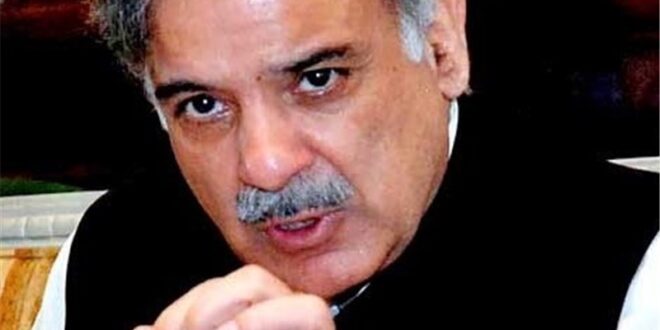In the intricate mosaic of South Asian geopolitics, the recent overture by Prime Minister Shehbaz Sharif for dialogue between Pakistan and India resonates as a potentially pivotal juncture in the enduring saga of their complex relationship.
Against the backdrop of historical grievances and simmering tensions, Sharif’s call for engagement serves as a glimmer of hope amidst the uncertainty that has shrouded the region for decades. The symbolism of August 5 cannot be overstated. This date marks the fourth anniversary of India’s decision to revoke Article 370, a constitutional provision that granted special autonomy to the region of Jammu and Kashmir. The consequences of this decision were far-reaching, fundamentally altering the geopolitical landscape and reigniting fervent nationalism on both sides of the border. Amidst this historical resonance, Shehbaz Sharif’s proposition for dialogue carries a nuanced significance, acknowledging the weight of the past while emphasizing the need for constructive diplomatic discourse to shape the future.
However, the backdrop against which this proposal is made is marked by the impending general elections in both Pakistan and India. These political contests, often characterized by heightened rhetoric and nationalist fervor, can either galvanize diplomatic efforts or exacerbate existing tensions. The narrative deftly navigates the intricate dance between electoral posturing and diplomatic maneuvering, underscoring how domestic political considerations can shape the trajectory of relations between the two nations. At the heart of this intricate narrative lies the perennially contentious issue of Kashmir. A mosaic of diverse identities, historical narratives, and territorial aspirations, the region embodies the complexities that have defined Indo-Pak relations for decades. The abrogation of Article 370, an assertive move by India, intensified the already volatile situation and transformed the status quo into one of heightened uncertainty. Sharif’s insistence on dialogue confronts this central issue head-on, spotlighting the imperative to address historical grievances and chart a path toward a sustainable resolution.
In the global arena, as skillfully explored within the passage, lies an additional layer of complexity. Pakistan’s proactive attempts to internationalize the Kashmir dispute, epitomized by its criticism of India’s decision to host the G-20 summit in the region, unveil a multifaceted diplomatic strategy. The nuanced responses, or in some cases, the lack thereof, from different nations illustrate the intricate interplay of alliances, strategic interests, and shared values that underscore international diplomacy. The involvement of China adds yet another dimension to the narrative. China’s own territorial disputes with India introduce a layer of complexity that reverberates beyond bilateral relations, underscoring the intricate web of interconnected interests in the broader region. This facet, adroitly unveiled in the passage, highlights how a seemingly bilateral issue can ripple through global dynamics, further underscoring the need for comprehensive and far-sighted diplomacy.
Amid these complexities, the international community’s role emerges as a critical factor. The passage artfully underscores the necessity for sustained vigilance, advocacy for peace, and a deep understanding of the delicate interplay of factors at play. It underscores the importance of maintaining consistent international pressure, ensuring that diplomatic avenues remain open even in the face of shifting political landscapes and evolving leadership. As the narrative unfolds, it crescendos towards a poignant realization – the pursuit of lasting peace is a continuous and collective endeavor. Leadership transitions, geopolitical shifts, and the unpredictable nature of human behavior underscore the dynamic nature of international relations. In this intricate tapestry, the actors – whether statesmen, diplomats, or engaged global citizens – have a crucial role in guiding the narrative towards a future characterized by mutual respect, cooperation, and enduring stability.
In this context, the call for dialogue, although not unprecedented, becomes a clarion call for a new era of understanding, cooperation, and reconciliation. It embodies the aspiration for a future where the specter of conflict is replaced by the promise of mutual prosperity. The passage eloquently underscores the imperative to rise above the noise of electoral politics, the intricacies of international relations, and the weight of history to create a narrative of hope, progress, and lasting peace in the South Asian region.
 Eurasia Press & News
Eurasia Press & News



